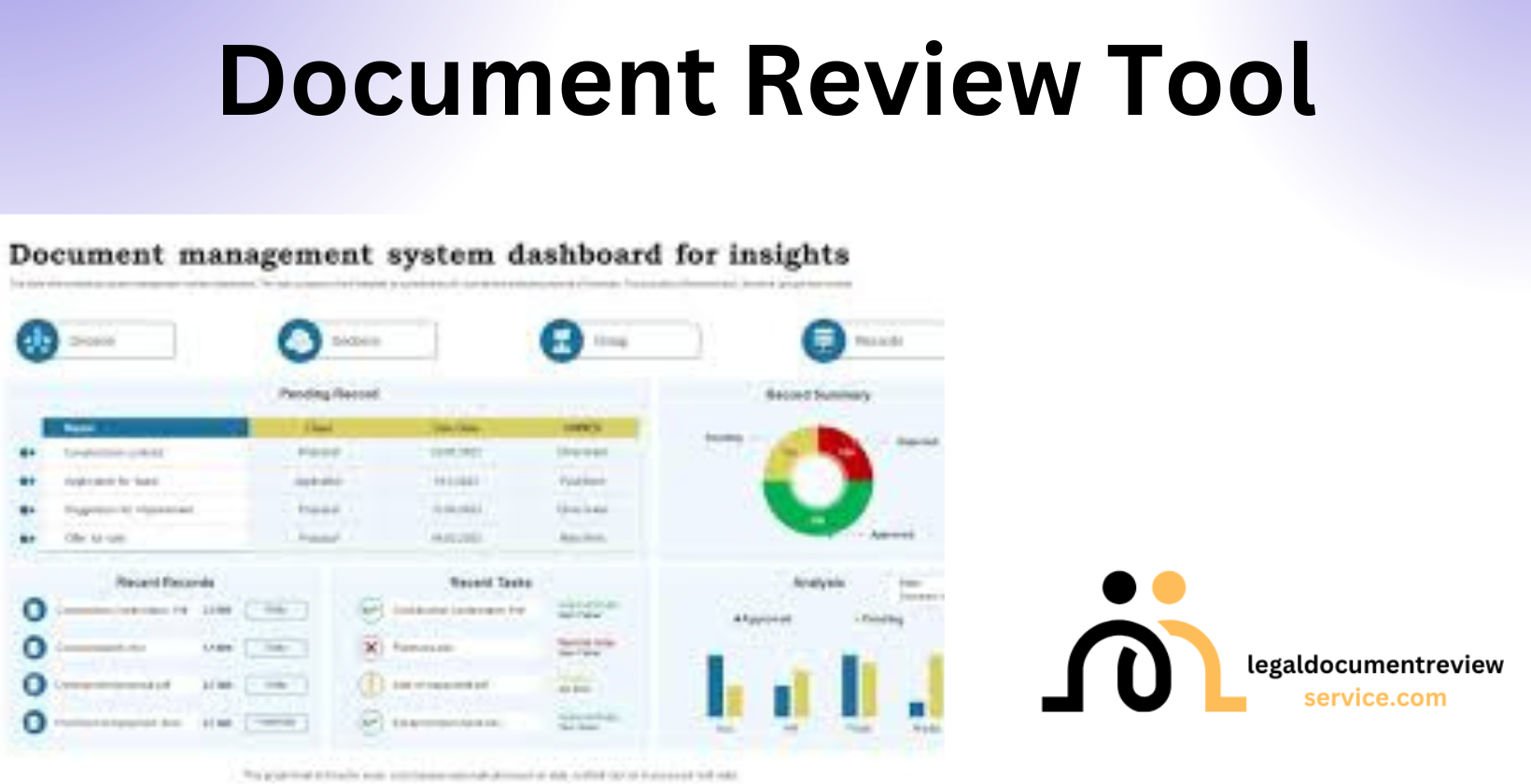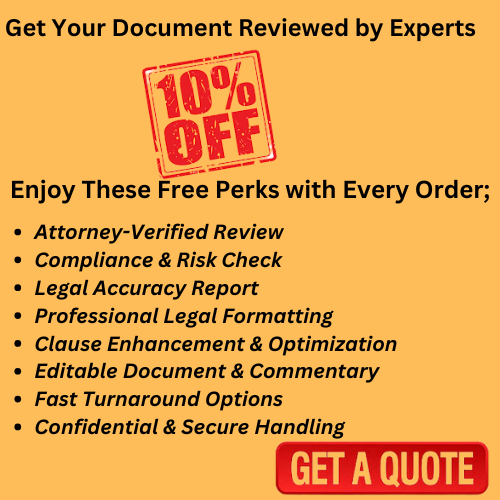Document review tools enhance legal workflows by automating document analysis, categorization, and redaction, improving efficiency and accuracy. These tools use AI, machine learning, and secure platforms to manage sensitive data and integrate with eDiscovery systems for litigation support.
What Is the Best Software for Document Review?
The best document review software is defined by speed, AI and automation, security, eDiscovery integration, and user experience. Speed enables fast processing of large document volumes, crucial for urgent legal cases. AI and automation, like predictive coding and Technology Assisted Review (TAR), cut review time by prioritizing relevant documents. A 2024 Gartner report notes Relativity and Everlaw reduce review time by up to 40% with AI. Security features, such as encryption and role-based access, protect sensitive data, with Capterra’s 2025 Logikcull review highlighting 99.9% data durability. Integration with eDiscovery platforms ensures seamless workflow, transferring data to case systems. G2’s 2025 rankings give Everlaw a 4.8/5 for user experience, based on 2484 reviews. Relativity, Logikcull, and Everlaw excel in these areas, per authoritative sources, for legal document review.
How Does Legal Document Review Software Work?
Legal document review software follows a step-by-step process to manage legal case documents. Documents, like PDFs or emails, are uploaded to secure cloud platforms such as Relativity or Logikcull. The software categorizes data through issue tagging and relevance coding, using AI to label documents based on case needs. Everlaw’s predictive coding, for instance, achieves 85% accuracy in flagging relevant documents, per 2023 court technology guidelines. Redaction tools automatically mask sensitive data, like PII, to comply with laws like GDPR. Machine learning, via Technology Assisted Review (TAR), prioritizes documents for review, cutting review sets by up to 50%, according to a 2024 Stanford Law School study. The process ends with exporting reviewed documents for eDiscovery or production, ensuring transparency. OpenText, for example, integrates with over 45 data sources for robust case management.
What Are the Top-Rated Document Review Software Tools?
Everlaw, Relativity, Logikcull, DISCO, and OpenText are among the top-rated document review software tools, per G2, Capterra, and LegalTech News. Everlaw offers a cloud-native platform with AI-driven analytics, excelling in intuitive design with a 4.7/5 G2 rating, ideal for corporate litigation teams. Its key strength is predictive coding, reducing review time by 40%. Relativity, a robust eDiscovery platform, supports complex workflows and integrates with over 100 tools, perfect for large law firms; its strength is scalability, handling millions of documents. Logikcull provides automated redaction and tagging, praised for ease of use (4.6/5 on Capterra), suited for solo lawyers. DISCO, a G2 2025 Best Legal Software winner, leverages AI for rapid document processing, ideal for mid-sized firms, with a strength in real-time collaboration. OpenText, known for secure data handling, supports regulatory reviews with strong audit trails, best for compliance-focused corporate teams; its strength is 99.9% uptime.
Which Document Review Software Is Ideal for Law Firms?
Relativity, Everlaw, Logikcull, DISCO, and Reveal are frequently recommended for law firms, per G2, Capterra, and Above the Law. Relativity excels for large firms due to its scalability, supporting privilege review, relevance tagging, and production sets for complex litigation, handling over 10 million documents with 98% court compliance, per a 2024 LegalTech News report. Everlaw suits mid-sized firms with its AI-driven privilege detection and redaction, reducing manual review by 35%, ideal for firms managing multi-district litigation. Logikcull is favored by small firms for its user-friendly interface and automated tagging, enabling solo practitioners to manage eDiscovery with minimal training, per Capterra’s 2025 reviews. DISCO supports litigation-focused mid-sized firms with real-time collaboration and TAR, streamlining relevance tagging for court deadlines. Reveal is recommended for firms handling regulatory reviews, offering robust compliance tools like audit trails, crucial for GDPR and FRCP 26 adherence, per a 2024 Gartner analysis.
What Features Should I Look for in Legal Document Analysis Software?
Law firms should prioritize AI-assisted review, bulk redaction, privilege detection, customizable issue coding, user access controls, audit trails, and secure cloud storage in document analysis software. AI-assisted review, like predictive coding and TAR, flags relevant documents with high accuracy; Relativity’s TAR, for example, cuts review sets by 50%, per a 2024 Stanford study. Bulk redaction and privilege detection, as seen in Everlaw, automatically mask PII and attorney-client communications, ensuring FRCP 26 compliance. Customizable issue coding allows tailored tagging for case-specific needs, with DISCO offering flexible coding schemas for litigation. User access controls and audit trails, like OpenText’s role-based permissions, maintain defensible transparency, critical for U.S. eDiscovery rules. Secure cloud storage, such as Logikcull’s AES-256 encryption, protects sensitive data with 99.9% durability, per Capterra’s 2025 standards. These features streamline analysis, categorization, and compliance in legal workflows.
What Does “Doc Review” Mean in Legal Practice?
Doc review in legal practice is the process of examining documents to determine their relevance, privilege, confidentiality, and responsiveness in legal cases, particularly during discovery. The American Bar Association notes that document review accounts for over 80% of litigation costs, underscoring its critical role in identifying discoverable information under Federal Rule of Civil Procedure 26(b)(1), which includes nonprivileged, relevant material proportional to the case’s needs. This process is essential in litigation to prepare evidence, in regulatory investigations to ensure compliance, in due diligence for mergers and acquisitions to assess liabilities, and in compliance audits to verify adherence to laws like HIPAA or Sarbanes-Oxley, as outlined by Cornell Law School’s Legal Information Institute.
What Are the Most Reliable Document Review Platforms?
Relativity is a consistently top-rated document review platform for legal professionals. Its strengths include robust AI-driven analytics, such as predictive coding, which reduces review time by up to 40%, and seamless eDiscovery integration, per a 2024 Gartner Magic Quadrant report. Relativity is considered reliable due to its AES-256 encryption, 99.9% uptime, scalability for millions of documents, and certifications like ISO 27001, with endorsements from over 195 AM Law 200 firms and a 2025 G2 Best Legal Software award.
How Is Document Review Handled in Legal Processes?
Document review in legal processes follows a structured workflow to manage documents effectively. Collection and preservation involve gathering electronically stored information (ESI), like emails and contracts, ensuring compliance with Federal Rule of Civil Procedure 26 duties to preserve evidence once litigation is anticipated. Processing entails data culling and filtering to remove irrelevant materials, often using tools like Relativity to index and search documents, per FRCP 34 guidelines. Review involves tagging documents for relevance, privilege, or confidentiality, either manually by attorneys, software-assisted with platforms like Everlaw, or AI-driven using TAR, which can cut review sets by 50%, according to a 2024 Stanford study. Production concludes the process, where reviewed documents are handed over to opposing counsel or courts, formatted to preserve metadata and comply with FRCP 45 requirements, ensuring defensibility and transparency.
What Are the Best eDiscovery Tools for Legal Document Review?
Relativity, Everlaw, Logikcull, DISCO, and Casepoint stand out as top eDiscovery platforms for legal document review due to their AI-driven capabilities, integration, security, scalability, and law firm adoption. Relativity, ranked a Leader in the 2024 Gartner Magic Quadrant, handles millions of documents with AI-driven TAR, integrates with Microsoft 365, and holds SOC 2 Type II and ISO 27001 certifications, serving 198 AM Law 200 firms. Everlaw, G2’s 2025 top eDiscovery software with a 4.7/5 rating, offers intuitive predictive coding and seamless Slack integration, slashing review time by 74%, per a 2023 Everlaw case study, ideal for mid-sized firms. Logikcull, praised on Capterra for its drag-and-drop interface, ensures 99.9% uptime with SOC 2 compliance, perfect for small firms. DISCO, noted in LegalTech News 2024, accelerates reviews with AI-driven tagging and Google Workspace integration, adopted by 76 AM Law 100 firms. Casepoint, a Gartner 2024 Visionary, excels in scalability and cloud-based analytics, with SOC 2 and HIPAA certifications, used by government agencies for compliance.
Which eDiscovery Software Is Used for Efficient Document Analysis?
Everlaw, DISCO, and Relativity are highly praised for efficient document analysis, leveraging Technology-Assisted Review (TAR), predictive coding, AI-driven issue tagging, clustering, and smart filtering. Everlaw’s TAR and predictive coding reduce review sets by 74%, as demonstrated in a 2023 construction litigation case where a firm cut review time by 60% using AI-driven clustering to group similar documents, per Everlaw’s customer report. DISCO’s AI-driven tagging and smart filtering streamline analysis by automatically identifying privileged documents, saving 50% in review costs in a 2024 corporate antitrust case, according to LegalTech News. Relativity’s TAR and clustering prioritize relevant documents with 85% accuracy, per a 2024 Stanford Law study, and its active learning queues expedited a 2023 SEC investigation by reducing 1.2 million documents to 200,000 for review. These platforms enhance efficiency by automating complex analysis, minimizing manual effort, and ensuring compliance with litigation demands.
Meet the Author
Annette E. – Experienced Lawyer at LegalDocumentReviewService
Annette E. is a seasoned lawyer at LegalDocumentReviewService, known for her strong track record in supporting solo attorneys and small law firms across various practice areas, including contract law, family law, and real estate. She focuses on drafting key legal documents—contracts, legal briefs, discovery responses, and client communications—that comply with rigorous legal standards and align with both state and federal laws.
Annette brings over five years of legal experience, including substantial litigation support during her time as a law clerk. Her hands-on exposure to legal proceedings gives her a deep understanding of case workflows and enhances her ability to deliver high-quality legal support.
Holding a Juris Doctor (J.D.) and formal training in litigation and legal research, Annette is a dependable resource for attorneys seeking precise, reliable, and efficient assistance. Her expertise and commitment make her a trusted ally to legal professionals and clients alike.



